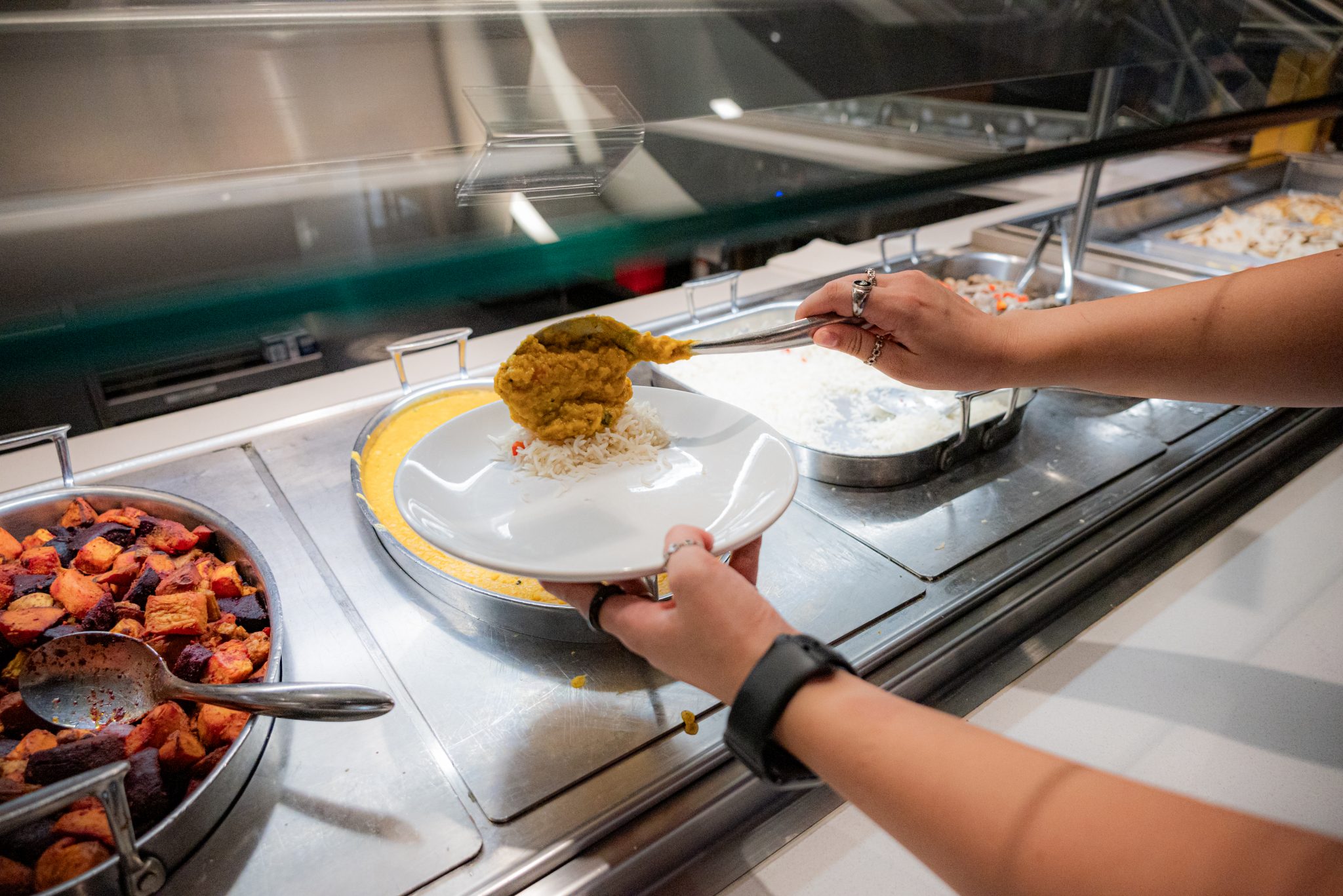By Charlotte Kanner
For The Diamondback
Activists from the Washington, D.C., area emphasized the importance of connections between food, culture and labor activism in Asian Pacific Islander Desi American communities Tuesday during a panel at the University of Maryland.
The Multicultural Involvement and Community Advocacy office hosted the panel for APIDA Heritage Month, which this university celebrates in April. The panel featured three guest speakers who taught attendees about issues surrounding identity, heritage and social justice.
Justine Suegay, this university’s coordinator for APIDA student involvement, moderated the panel and spoke about the importance and relevance of food in APIDA cultures and history.
“Food is a touchstone of our Asian, Pacific Islander and Desi American cultures, identities, history and heritage,” Suegay said.
This university’s theme for APIDA heritage month is “To the Table,” according to Stamp Student Union’s website. The theme emphasizes how food is an outlet for resistance.
[UMD SGA committee proposes student-driven mural program in Stamp]
The panelists shared personal anecdotes connecting food to their cultural backgrounds and experiences.
Jay Cleofe, an organizer with Anakbayan Montgomery County — a grassroots youth organization dedicated to fighting for democracy in the Philippines — also spoke Tuesday night. He brought attention to the Philippines’ struggle against capitalism and imperialism, highlighting the exploitation of laborers and the need for national democracy.
As a Filipino boy, Cleofe struggled to figure out who he was and took his parents’ cooking for granted, they said. As Cleofe got older, he realized food was ultimately a gateway and a connection to his culture and home, they added.
For panelist Quỳnh Nguyễn, food is associated with gentrification in cultural spaces. Nguyễn is the co-founder and co-organizer of Viet Place Collective, an organization that aims to uplift the legacy of the Vietnamese community in the area.
Nguyễn emphasized how power dynamics tie into food, providing an example of how the status of Chinatowns in the country is in trouble. They highlighted the Eden Center, a strip mall in Falls Church, Virginia where the city council adopted a redevelopment plan in the surrounding 10 blocks, according to The City of Falls Church Virginia’s website.
[Chefs highlight their backgrounds, personalities through takeovers in the dining hall]
Improving housing and amenities can sound like a great idea, but price inflation from redevelopment can create gentrification, according to Viet Place Collective’s website.
“Redevelopment is never a natural process, it is manufactured,” Nguyễn said.
Aparna Raj, the organizer and content creator of @districtdelicious — an Instagram page dedicated to food and democracy — highlighted the significance of food in her culture during the panel.
Raj emphasized how she has reconnected with her roots through food — particularly dosa, a type of South Indian crepe.
Raj’s Instagram page was born after she wanted to place a focus on labor dynamics and worker rights, she said. Through her experiences in the restaurant industry, she discovered investors disproportionately supported white men.
“Commodification of food has a lot of power in this capitalistic society,” Raj said.



